Translations 677
Irresponsibility Puts Lives at Risk


Irresponsibility Puts Lives at Risk
It is necessary to close every gap where the new coronavirus enters, almost always accompanied by indolence, insensitivity and carelessness.
Author: Ortelio González Martínez | internet@granma.cuApril 8, 2020 23:04:55
Translated and edited by Walter Lippmann for CubaNews.
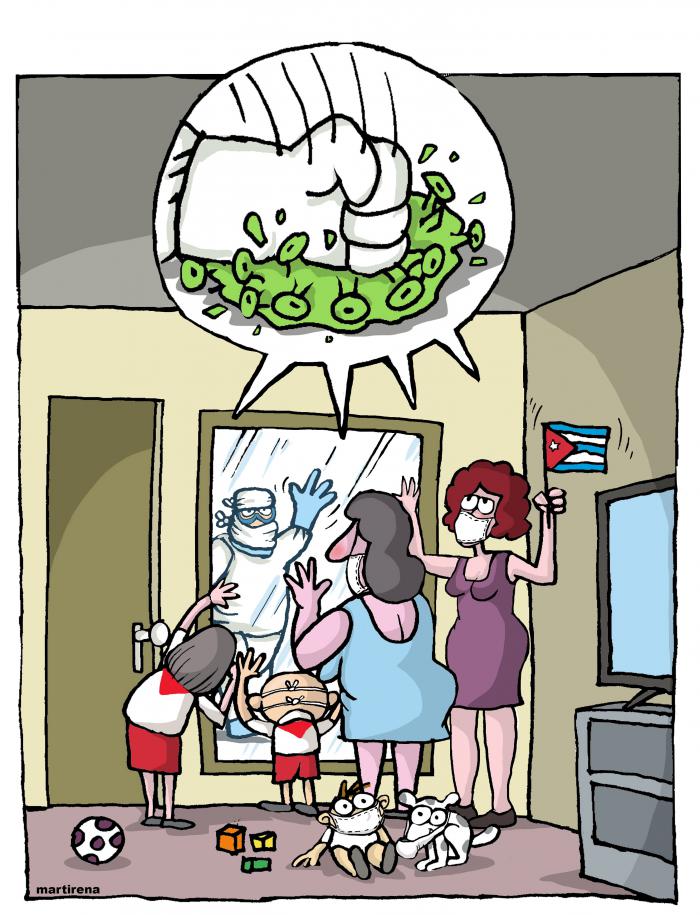
In a farewell celebration in Limpios Grandes, a community of a little more than 200 inhabitants belonging to the territory of Florencia, a traveler from the United States did not imagine that he would leave such a sad mark when, in the second half of March, he returned to his country of origin. There there were several people left infected with the new coronavirus, a figure that today reaches 17 patients, starting with case zero: a young woman who was only 18 years of age confirmed as positive on April 2.
The girl had close ties with the visitor and in turn with relatives in the community, which is why six of those confirmed live here, including some children. Another five confirmed cases are from the Florencia headwaters, allegedly infected at a family party she attended.
The value of the constructive criticism made by President Miguel Díaz-Canel Bermúdez at the meeting to follow up on the plan approved by the Cuban Government for the prevention and control of the new coronavirus on the island is based on the purpose of achieving a favorable change that will benefit each and every one of the people, whether or not they are involved in the current pandemic that is sweeping Cuba.
Without half-measures, he emphasized that “we still have to criticize those who are still reluctant to abide by the discipline necessary to keep the curve of the disease as flat as possible.
“This is not a request,” he said, “it is an obligation that we must assume with citizen responsibility and that must help us fulfill our institutions of internal order that are deployed, along with their people, in these difficult days.
“Life is telling us that, when someone hides information about their health status, we can mourn the loss of a life and we can mourn other lives that are put at risk.
In the face of the new coronavirus, there are no crossed arms in Ciego de Avila. Evaristo González Camacho, provincial director of the Integral Direction of Supervision, confirms figures: 3,727 inspections carried out, 1,862 fines imposed in the amount of 794,165 pesos; 813 warnings and 22 licenses to practice self-employment withdrawn (basically related to price violation).
The Provincial Prosecutor’s Office, for its part, had filed 20 cases as of 2 April, 11 of which were prosecuted as crimes of spreading epidemics, punishable under article 187 of the Criminal Code. These were generally persons who had violated the need for isolation, an extremely irresponsible behavior.
In addition, more than 327,000 investigations are carried out every day by medical and dental students, together with doctors, family nurses and political and mass organizations. “Now the important thing is to go deeper into the quality of the research,” Dr. Osvaldo Ivañez, provincial director of health, said at a press conference.
However, gaps exist. There is still a need to denounce in a timely manner the inappropriate conduct of the people, the people’s council and the on the block, because everything cannot be left to the forces of MININT.
It is necessary to act more rigorously in confronting the illegalities and behaviors that in the midst of the pandemic put people’s lives at risk; a call that the country’s highest leadership never tires of making.
Two people from Ciego de Avila died from sars-CoV-2, in the popular council of Florencia with a local transmission event, as well as the town of Turiguanó, 88 people in the isolation centers and figures with a tendency to grow in several municipalities. These, set off the alarms in the province, located among those with the most diagnosed cases (48) in the country.
It is necessary to close any gap where the new coronavirus enters, almost always accompanied by indolence, insensitivity and lack of concern.
Immunization, But Not Just Against the Virus

double click
Immunization, But Not Just Against the Virus
Let us hope that, once this pandemic is over, the Cuban people will end up being immunized, not only from the virus but also from that other scourge which is disinformation. In this way, we will be closing an important gap for this great historical enemy that is always looking for a way to inoculate its poison.
Author: Michel E. Torres Corona | internet@granma.cu
April 8, 2020 01:04:19
Translated and edited by Walter Lippmann for CubaNews.
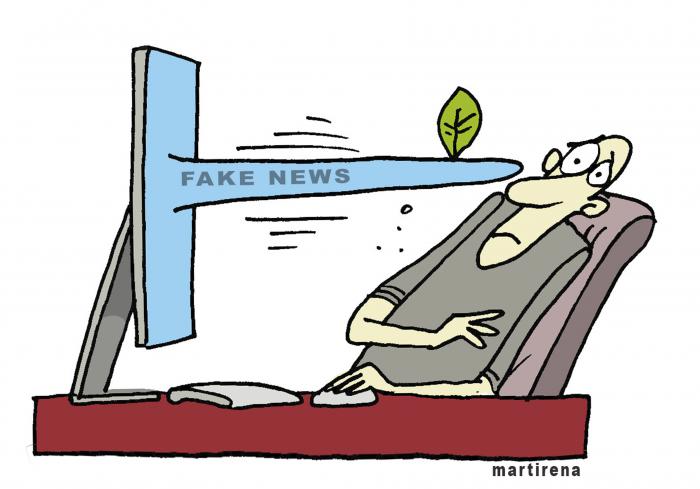
Photo: Martyr
“King, you know I’m a biologist.” That was the beginning of an audio that went viral on social networks, mainly on Whatsapp. Many people shared it, genuinely concerned about the questions that the supposed “biologist” was asking about Cuba’s strategy towards COVID-19.
Then it was Laura, “the one from Calixto”. If Rey’s biologist had previously felt the need to offer her academic credentials, now the new audio that was being circulated started from the very beginning clarifying a link with a public institution, in this case, the Calixto Garcia Hospital.
This new audio no longer questioned the Government’s strategy, but distorted facts and manipulated information to give the image that there was no real control over the confirmed cases and that the Cuban State was not acting with transparency.
“The virus is in the street,” said Laura (“the Calixto’s”), as she slipped in a few alarmist phrases, almost seeking to provoke panic and hysteria among her online “listeners.
But the icing on the cake was a third audio, which also went viral, and this time it was more like a science fiction suspense radio show. There was no longer any talk of the alleged shortcomings of the Cuban health system or of the “negligent” actions of the government.
No: now the story was that of outlaws, persecuted by the PNR, who were disguised as doctors. These alleged criminals would have entered national territory in a boat, deceived the population and instead of giving them medicinal drops, they would infect them with the sars-Cov 2.
All of the above would be humorous material if it weren’t for the fact that Cuba (and the rest of the planet) is facing a pandemic that has taken thousands of lives. But the Law foresees and sanctions this type of behavior.
Our Penal Code establishes a penalty of one to four years in prison for anyone who “spreads false news or malicious predictions tending to cause alarm or discontent in the population, or public disorder.”
Internet access and the use of mobile data, in addition to its obvious benefits, also places new users in an area where hoaxes (or fake news) abound. This vulnerability must be confronted with the timely dissemination of the truth in our media and the call of consciousness to only pay attention to truthful and contrasting information provided by legitimate sources.
In other words: pay more attention to Francisco Durán than to Laura “the one from Calixto”.
Let us hope that, once this pandemic is over, the Cuban people will end up being immunized, not only from the virus but also from that other scourge which is disinformation. In this way, we will be closing an important gap for this great historical enemy that is always looking for a way to inoculate its poison.
The Problem is Capitalism


The problem is Capitalism
Whoever believes that all other systems are worse, look at the blocked and vilified Island, where no one dies of hunger, everyone is guaranteed medical safety and the human being is the center of the system. The problem is capitalism.
By Ernesto Estévez Rams | internet@granma.cu
Translated and edited by Walter Lippmann for CubaNews.
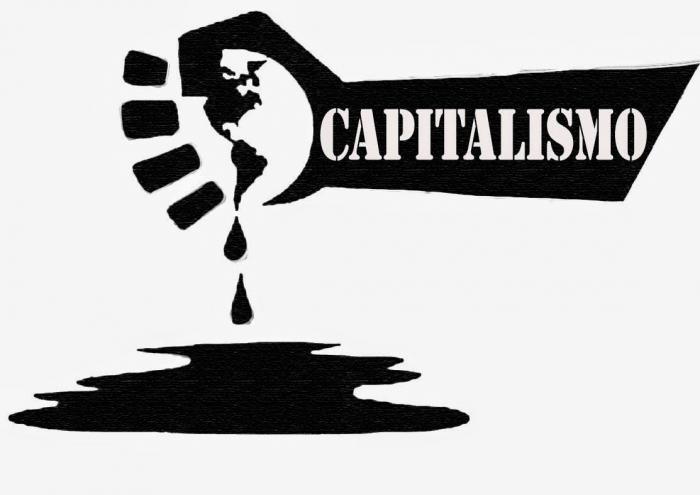
Churchill said that capitalism (he disguised it with the word democracy) was the worst form of government, except for all the others. Something that Eisenhower liked to repeat, who, as a military man, was not exactly known for his profound ideas. The sharp phrase might be clever if it were true, but it is not.
Today, the worst system is capitalism, above all others, of humanity and even of the planet.
This pandemic, unfortunately, only made the reality of it more visible to everyone. Capitalism is incapable of surpassing itself in terms of humanity, it only does so in terms of capital.
While people are dying in the streets, in the US, governors are cheating each other to ensure that the manufacturers of medical instruments sell them their products to the detriment of others. According to New York Governor Andrew Cuomo, ventilation equipment companies are calling government offices to say that their order has been overtaken by another state’s, which has just upgraded its purchase offer. Thus, based on the death of human beings, the companies are seeking to magnify their profits in the midst of tragedy.
The price of ventilation equipment has gone from $25,000 to $40,000, when it is needed most. The state, hospital or institution that does not have enough resources to buy them, simply will not have them, regardless of the cost in lives.
The nice motto that he says is that where some see problems, others see opportunities, is no longer so nice. Governor Cuomo is threatening to sign an order allowing the confiscation of unused medical equipment stored in private spaces for speculative purposes.
That is, people and businesses that keep unused ventilation equipment waiting for the advance of the pandemic to make it more expensive and then sell it to hospitals.
The federal state has been unable to impose a national policy for the distribution of medical equipment and supplies. If they ever do, because of their slowness, the dead will no longer be able to thank them. It is a matter of every person for themselves, typical of capitalism and today seen in all its criminal magnitude.
Practices of pillage that are nothing new, but that in everyday life are hidden behind the mantra that “that is the norm”. But that is not all. European governments confiscate shipments of medical equipment in transit to other European nations. France has confiscated 130,000 nasobucos in transit to the United Kingdom. Germany claims that the US Government has confiscated 200,000 masks that it had already bought from a manufacturer in China, owned by a US company. The shipment was intercepted in Bangkok at an event that German Interior Minister Andreas Geisel called modern piracy’.
Canadian Prime Minister Justin Trudeau complained that a shipment of masks had been reduced because part of it had been repurchased by the U.S. In Turkey, the nasobuco business has become so profitable that the government has confiscated nearly one million clandestine sales in a business that is already estimated to be worth over several million in profits.
The United States, not even for a moral imperative, would help the global fight against the pandemic. Reality shows its inability to do so effectively even in its own home, where Make America Great Again we already know what it [really] means, at the expense of the rest of humanity.
If anything, for the elites, America is 1% at the top of the social pyramid. Capitalism cannot fail to be savage; what happens is that, now, savagery without make-up touches the showcases, where their miseries were hidden behind the prosperity they maintain at the expense of the poorest people.
Frantz Fanon said that fascism was the name given to colonialism when it was brought to the metropolises. Outside of the first world centrality, the horror is lived in Ecuador or another location, which in that scavenging use of language, are usually called peripheral or emerging. Today, in front of the evidence of the medieval nightmare, they do not even mention it.
But it is worth remembering, now that everyone in the metropolises is scared, that the Third World does not escape pandemics. In Africa alone, 30 million people are in life-threatening conditions of hunger, and certainly with consequences for their physical and mental development.
Of the 5.9 million children who die every year in the world, at least half are the direct result of hunger. Oxfam, the author of the above-mentioned data, explains this reality very well: “Hunger is not the result of too many people and too little food. It has to do with power, and its roots lie in the prevailing inequality in access to resources and opportunities”.
Whoever believes that all other systems are worse, look at the blocked and vilified Island, where no one dies of hunger, everyone is guaranteed medical security and the human being is the center of the system.
The problem is capitalism.
Isolation, Quarantine and Social Distancing


Differences Between Isolation, Quarantine and Social Distancing
The World Health Organization has recommended these public health strategies to stop the new coronavirus, but how shall we differentiate between them and apply the appropriate one in each case?
April 6, 2020
Translated and edited by Walter Lippmann for CubaNews.
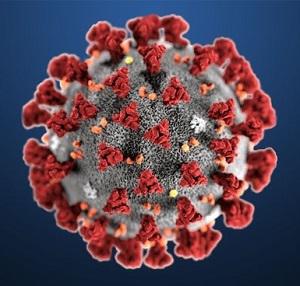
ISOLATION
Isolation applies to people who have tested positive for Covid-19, to suspected cases or to people who have had close contact with sick people and who would have a high probability of having contracted the virus.
Isolation should be strict to avoid contact between people who have become ill and those who are healthy and is usually done within a hospital or health center, with the necessary medical supervision.
QUARANTINE
It is the way to limit the movement of healthy people who may have been exposed to the virus and do not know it. Quarantine lasts 14 days and must be done by all people who arrived from the affected and high transmission areas of covid-19.
VOLUNTARY QUARANTINE
Many people have made the decision to stay home voluntarily, as a preventive measure for two weeks. This way they will avoid contact with other people. By not attending work, not receiving visitors at home, and not using public transportation, the risk of contagion is potentially reduced.
SOCIAL DISTANCING
If you are not in quarantine or isolation, when you leave your home for strictly necessary reasons, such as going to the supermarket or pharmacy, you should adopt social distancing: separating one meter from another person, minimizing activities or going to public places.
SOURCE: agendapro.com
Why Shouldn’t You Drink During Self-Isolation?


Why Shouldn’t You Drink Alcohol During Self-Isolation?
Health specialists have said that alcohol consumption, as an effective measure to prevent the spread of the new coronavirus, is just a rumor that has been circulating in the networks after the increase in the spread of covid-19
April 7, 2020
Translated and edited by Walter Lippmann for CubaNews.
Millions of people in different countries are forced to remain self-isolated these days, and some resort to alcohol to relieve the stress of confinement.
Health specialists have said that alcohol consumption, as an effective measure to prevent the spread of the new coronavirus, is just a rumor that was unleashed on the networks after the increased spread of covid-19.
They explained that, up to now, no scientific study has confirmed this fact. However, what they do categorically affirm, from the World Health Organization, is that it neither helps nor prevents the spread of covid-19. On the contrary, the known damages it causes to human health weakens the defenses of the organism to face a possible infection, especially the one generated by sars CoV-2, so aggressive and deadly.
What consequences can this behavior have?
Drinking alcohol during self-isolation to relax and lift your spirits can lead to dependency.
The subjectively pleasant effect of alcoholic beverages is not natural and does not last long. Humans adapt quickly and then need an ever-increasing dose to reach that state, until sobriety becomes an uncomfortable state.
The person becomes unable to enjoy life without being stimulated, becomes moody, irritable and begins to have sleep problems, while alcohol intake does not help to remove these symptoms.
Drinking during treatment for the new coronavirus can lead to serious complications: alcoholic beverages cancel out the effect of the medications and some of the alcohol is released from the body through breathing, making the lungs more vulnerable to infection.
Cuban Media Working as Pandemic Advances


In photos: How is the Media Working in Cuba as the Pandemic Advances?
The editorial strategy of every media outlet in Cuba goes hand in hand with the application of strict preventive measures because, as a premise, if there is one thing the people cannot be without, it is information and in order to offer it, one must also be healthy
April 6, 2020
Translated and edited by Walter Lippmann for CubaNews.
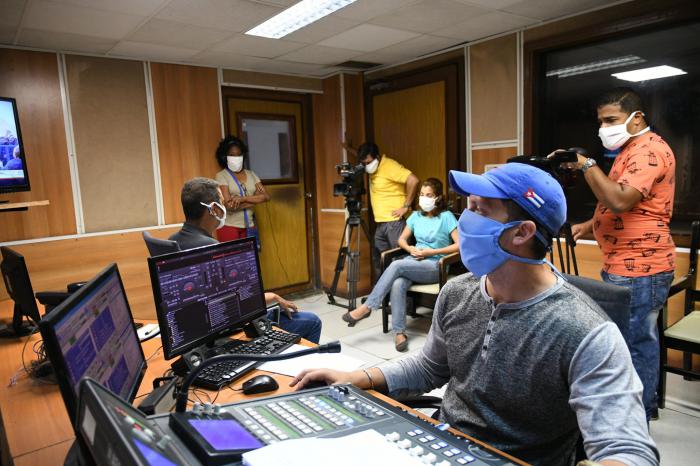
Rebel Radio Photo: Secret Naturality (Latin World)
There are frontline heroes, heroes in white coats.
There are others in the background, behind a microphone or a camera.
There are others who write, ask, speak.
There are anonymous heroes.
Sometimes they’re called journalists, camera operators, announcers, sound recorders, photographers…
In this joint battle against the coronavirus in Cuba, communication is key.
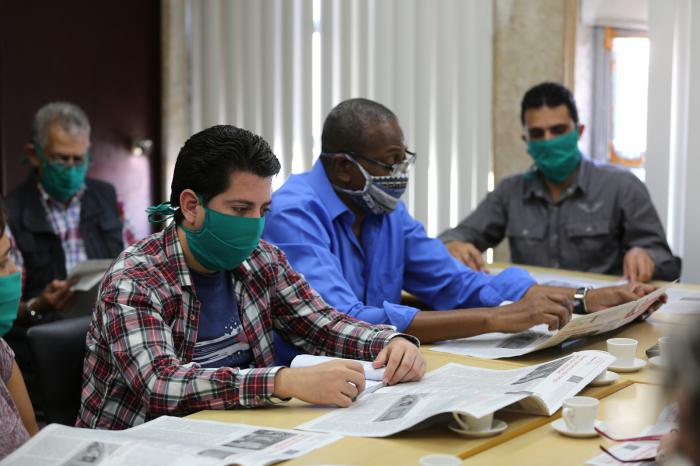
Periódico Granma Foto: Naturaleza Secreta (Mundo Latino)
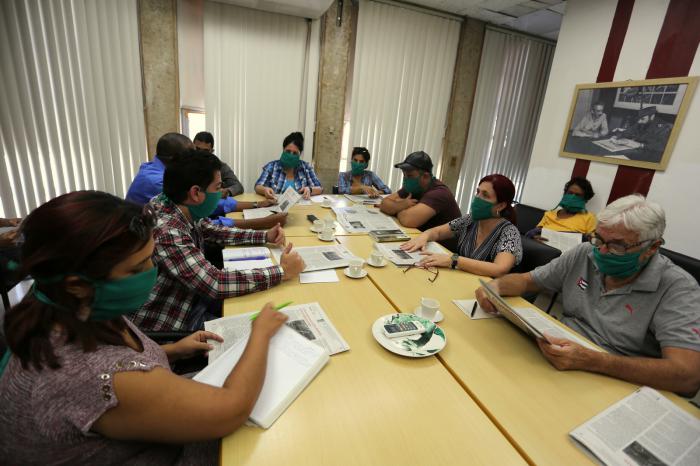
Periódico Granma Photo: Naturaleza Secreta (Mundo Latino)
DEALING WITH FALSE NEWS
For Demetrio Villaurrutia, Deputy Director of Radio Rebelde, the first challenge is to inform.
“In a scenario where so much false news appears, the media has the role of guiding the population and increasing the perception of risk; without panic, but with awareness,” he said.
“Even when we are taking all the measures, we are also risking our health. In my case, I think about the family and I know they understand my social role,” he added.
Secret Nature will continue to share the stories behind the scenes of these information heroes.
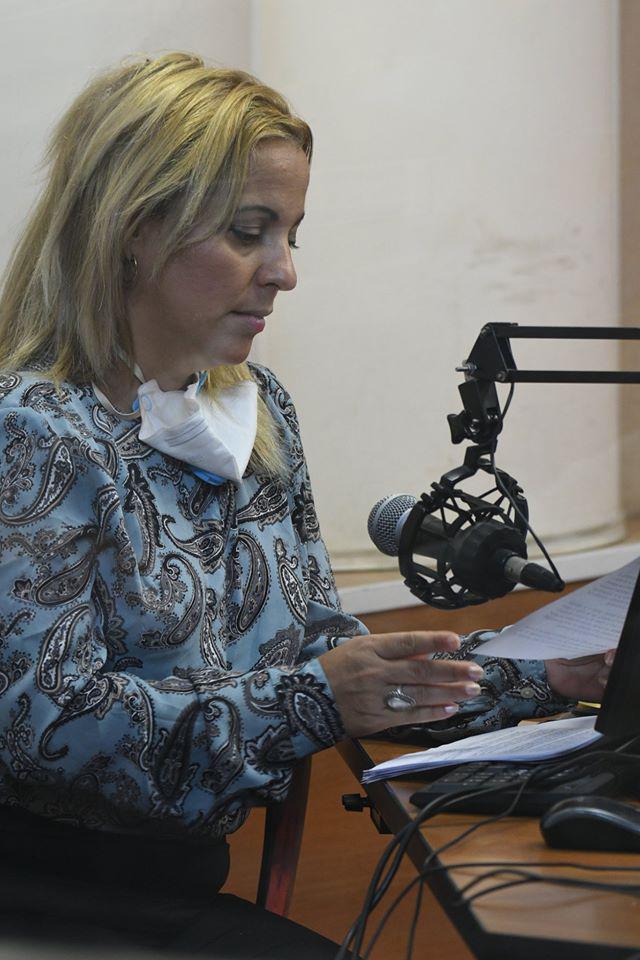
Rebel Radio Photo: Secret Naturality (Latin World)
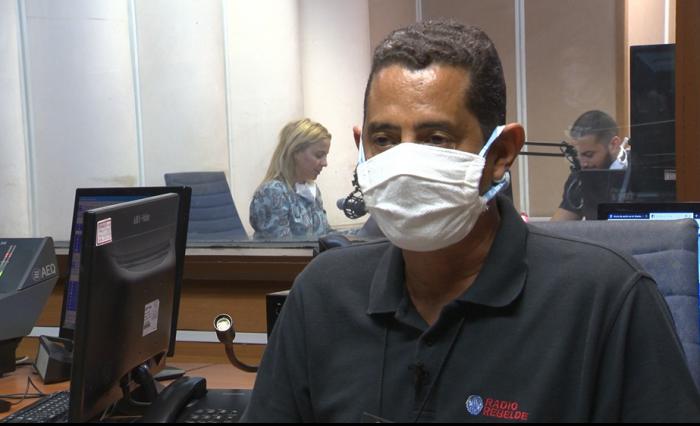
Rebel Radio Photo: Secret Naturality (Latin World)
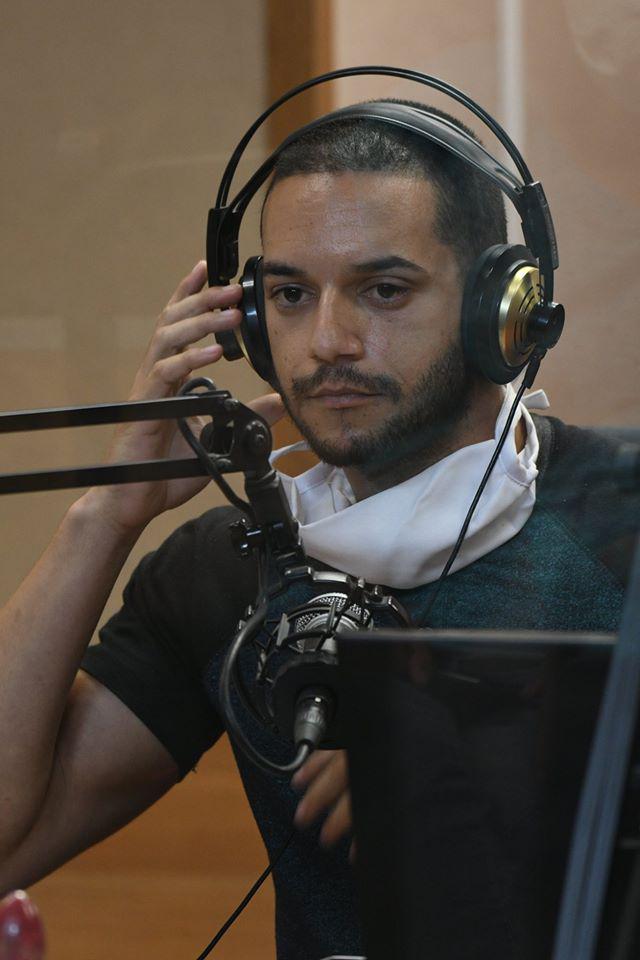
Rebel Radio Photo: Rebel Radio
Yurisander Guevara Zaila, Deputy Director of Juventud Rebelde: “Right now the only thing being talked about in Cuba and in the world is the coronavirus. That is because humanity is experiencing an event like this for the first time. We are engaged in a communications campaign to constantly inform the people about the measures they should take. We have tried to create a journalism that calls for responsibility.
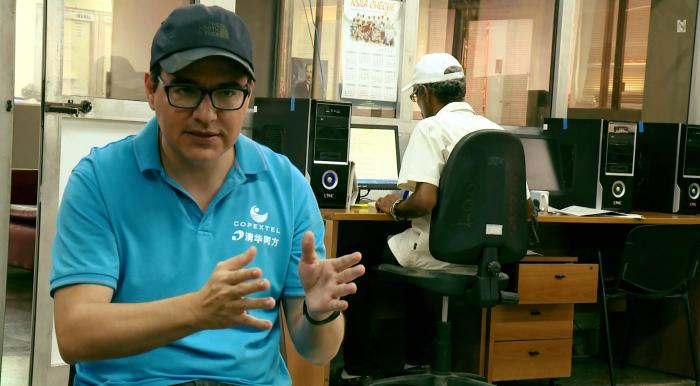
Juventud Rebel Photo: Secret Naturality (Mundo Latino)
“With the COVID-19 our life changed. It’s true that many of us can’t stop going out because we have to go and buy the products we need in the house, but you can stand in line far away from the other person”.
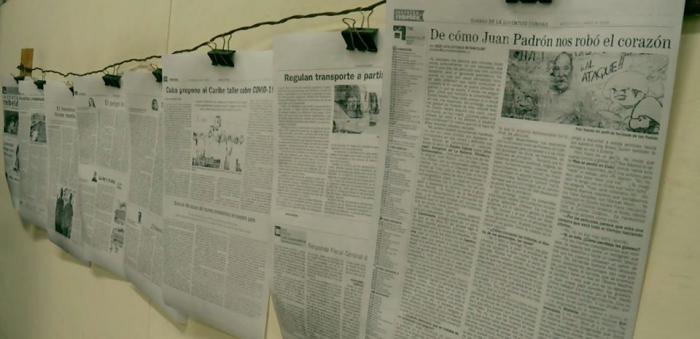
Juventud Rebel Photo: Secret Naturality (Mundo Latino)
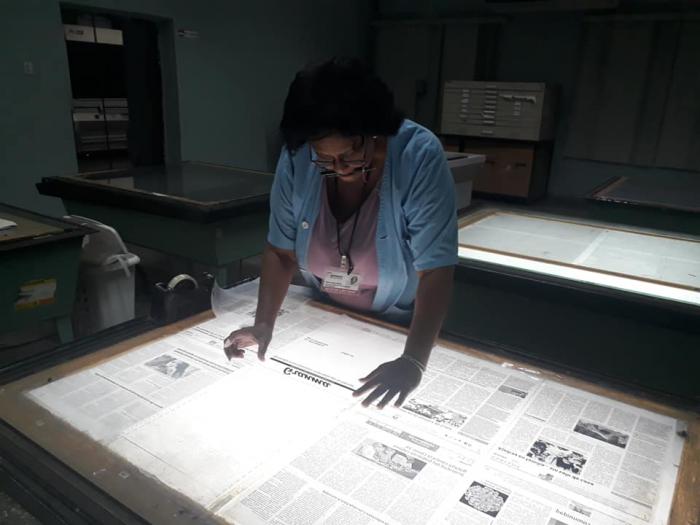
Juventud Rebelde Photo: Juventud Rebelde
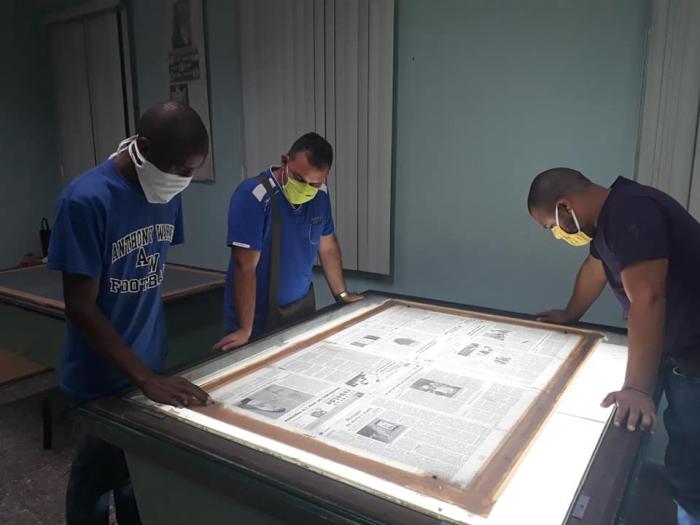
Juventud Rebelde Photo: Juventud Rebelde
Source of text and photos: Facebook page of Naturaleza Secreta, an audiovisual project of Mundo Latino
Psychological Management of Isolation

Psychological Management of Isolation
Paradoxically, this dramatic moment for the human being is an opportunity to stop the consequent damage of so many other excesses that put the existence of the planet and life at risk
By Mariela Rodríguez Méndez
April 6, 2020
Translated and edited by Walter Lippmann for CubaNews.
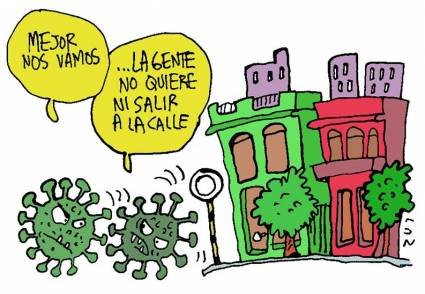 Isolation is an effort for the world economy and subjective, applied with the intention of gaining health and life. Every contagion that is avoided is a way to stop the progression of this epidemic that is costing humanity so much.
Isolation is an effort for the world economy and subjective, applied with the intention of gaining health and life. Every contagion that is avoided is a way to stop the progression of this epidemic that is costing humanity so much.
Paradoxically, this dramatic moment for the human being is an opportunity to stop the consequent damage of so many other excesses that put at risk the existence of the planet and life or its enjoyment.
Pause in the urgency, the haste, the daily race to fulfill, to win, to be successful, to consume, to be in fashion, etc. A pause from those days with the feeling that time was not enough, that what matters most or is enjoyed was postponed. We are invited to a pause for reflection, reorientation, the encounter with the compass that indicates those little things that make us feel and help us to live. This is also a break longed for by many, even if it is difficult to recognize.
It is a pause that will make us look, listen and speak to those who accompany us in the home. It will be an opportunity to rediscover what unites us with them. Perhaps it is also a time to ask ourselves how we would like to live the next isolation, even if that is chosen in the best conditions of a planet pulsating with life and vigor. Isolation to love, work and create.
Baby Born in Isolation Center

Baby Born in Isolation Center
The baby was named Mario Ramses and is in good health with his mother
By Hugo García
April 7, 2020
Translated and edited by Walter Lippmann for CubaNews.

The unexpected birth are samples of the capacity, experience and cohesion of the medical team that works in this isolation center in the city of Matanzas Author: Hugo García Published: 07/04/2020 | 12:27 am
Matanzas: Two extraordinary and emergency events took place during the last days of confrontation with COVID-19 at the Mario Muñoz Monroy Hospital’s isolation center.
First, a Russian tourist who had suffered a hip fracture at the hotel where she was staying was successfully operated on. Then, Dayana Almeida Gómez was assisted in giving birth at the same institution, where she remained suspected of carrying the new coronavirus and there was no time to transfer her to the city’s maternity hospital when she went into labor.
A medical team made up of Doctors Ramses Isaac Marrero, Lourdes Gonzalez Cabrera and Noel Rodriguez Ortiz, assisted by staff from that hospital, brought the 22-year-old to full term. She was admitted on April 2 and was transferred to the provincial maternity hospital on Sunday, April 5.
“I named him Mario Ramses, in honor of the doctor from Moncada, whose name the hospital bears, and Dr. Ramses,” says Dayana, a resident of the Ciénaga de Zapata municipality, who entered as a suspicious case and finally she and her baby were diagnosed as negative.
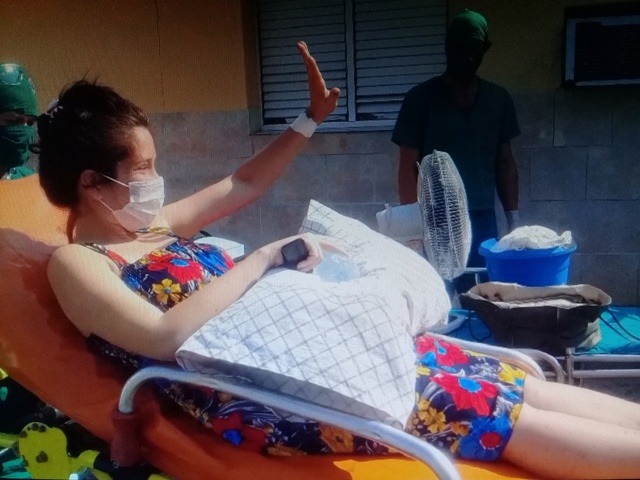
Photos: Hugo Garcia
Both the surgical intervention for the foreign tourist and the unexpected birth are samples of the capacity, experience and cohesion of the medical team that works in this isolation center in the city of Matanzas, from which four patients in good health have already been discharged.
The new mother behaved very well and it was a quick delivery, says Ramses: “We had all the conditions in this hospital, even though normally deliveries are never carried out here. Everything went well and the baby weighed 3,250 grams.
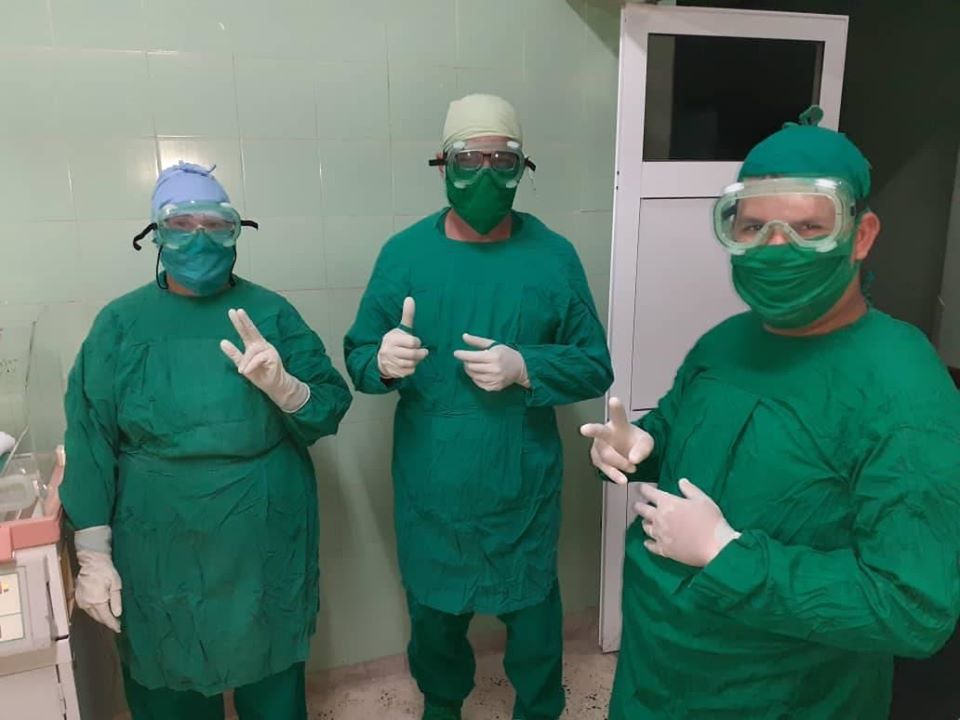
Doctors Lourdes González Cabrera, Ramsés Isaac Marrero and Noel Rodríguez Ortiz
Related photos:
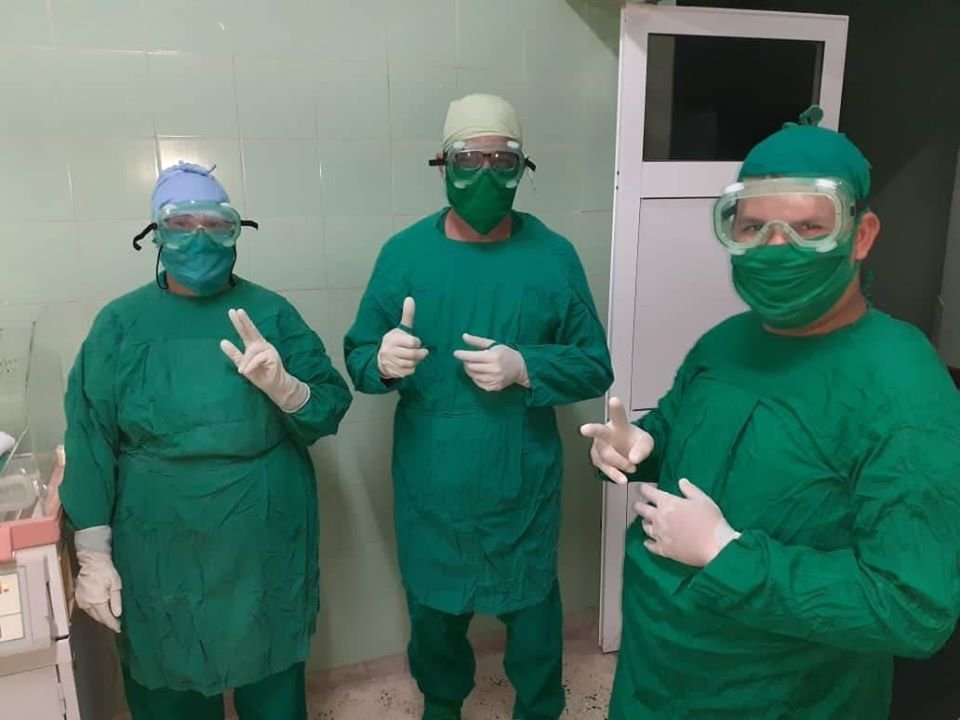
70% Increase in Gender-Based Violence

Chile Reports 70% Increase in Gender-Based Violence During Quarantine
The Chilean Government is preparing a set of measures to expand the network of support for women victims of gender violence from government and business bodies
April 7, 2020
Translated and edited by Walter Lippmann for CubaNews.
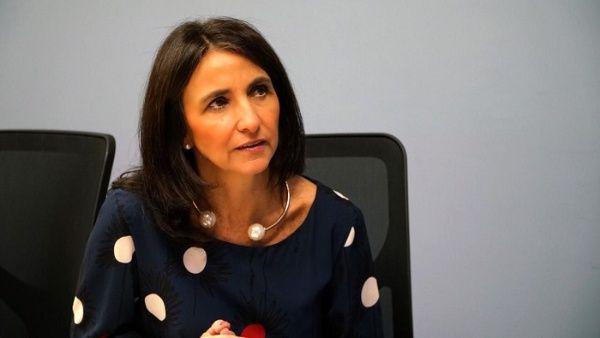
Minister Carolina Cuevas explained that Chilean women need to ask for guidance and help when they are victims of domestic violence. Photo: Taken from Telesur
The Ministry of Women and Gender Equality in Chile reported on Monday a 70 percent increase in calls made by women to a domestic violence hotline during the first weekend under quarantine in the country following the health crisis generated by the coronavirus.
The information came to light as part of a study provided by the minister of the portfolio, Carolina Cuevas, who implemented a contingency plan that included special reinforcement of the Fono Orientación 1455 shifts, to protect women who reported being subjected to domestic violence.
The weekend before the quarantine, 532 calls were received, while in the same period, one week later, the number rose to 907. “This significant increase in calls is also a reflection of the fact that there is a need to ask for guidance and help in times when women are spending more time in our homes, possibly with our partners,” Cuevas explained.
For its part, the Public Prosecutor’s Office reported that, although reports of domestic violence have decreased by 18 percent compared to last March, reports of femicide have increased by 200 percent in the same period of time.
The Chilean government is preparing other measures to expand the network of support for women victims of gender violence, such as coordination with public agencies to safeguard care in periods of emergency, increasing the capacity of shelters and a messaging service, via SMS or WhatsApp, so that women can communicate in a “silent” manner that will be implemented in the following weeks.
Cuevas also met with the president of the employers’ union, the Confederation of Production and Commerce (CPC), Juan Sutil, to discuss the impact of the health crisis on women workers. The minister requested that companies provide formal support to women in preventing domestic violence and incorporate the issue into their permanent policies.
In this regard, a group of Chilean women legislators and feminist organizations sent a letter to President Sebastián Piñera, asking him to strengthen measures to prevent violence, to prohibit the sale of alcohol that can trigger violent acts, such as creating immediate action groups and establishing strategies for reporting violence through websites, pharmacies or supermarkets. Gael Yeomans, MP and president of Convergencia Social, said that additional measures should be taken to allow victims of gender-based violence to break out of quarantine if they need help.
Global #QuedateEnCasa Campaign

How Did the Global #QuedateEnCasa Campaign Begin?
A Spanish-language label is spreading rapidly through Facebook and Twitter. Used in serious, funny publications, it is used by professionals to share tips on how to protect themselves from COVID-19 and the citizens of the world when they post photos from their days of isolation, at home, in physical isolation.
April 7, 2020
Translated and edited by Walter Lippmann for CubaNews.
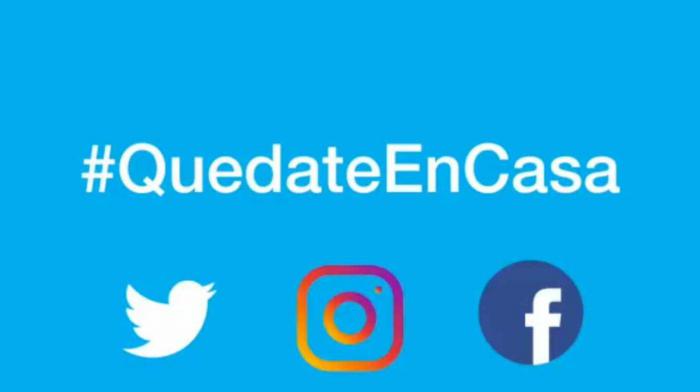
Photo: Taken from the Internet
This is the famous label #QuedateEnCasa, which – who would imagine it – began as a challenge from the doctors and nurses at the Hospital Clínico in Madrid. They invited all of Spain to become aware of the importance of individual responsibility to avoid infecting other people, according to the Mallorca newspaper.
The challenge, the first and most famous of many launched later by people from all over the world, began with a video available on the official Twitter account of the Public Health of the Community of Madrid that exceeded 250,000 views in five hours. In the audiovisual, the medical staff calls on the population to join a voluntary quarantine and recommends taking responsible measures so as not to collapse the Spanish health system.
According to Europa Press, the promoter of the initiative was surgeon general Sandra García Botella, who came up with the idea “because of the impotence of seeing that the message that is being transmitted through the media is not reaching the people well” (?) “it’s not a vacation, the children don’t have to be in the park, [the young people] don’t have to be staying, they don’t have to go out to the bars,” she said.
She also added that with the youth “it doesn’t work for a politician to go out and give a message, hashtags [labels] work, challenges work.
The campaign, which immediately went viral on social networks, was joined by representatives from the world of sports, entertainment, culture and “influencers. Now there are videos calling for social isolation, such as the one by the Spanish Football Federation. New challenges have appeared to encourage confinement, such as daring to tell a goal, creating recipes with a sporting aroma, doing crossfits with bags of rice, or playing golf with toilet paper, says Marca, one of the most well-known media in the field of sport.
In Italy, they launched a campaign similar to the Spanish #QuedateEnCasa. The authorities resorted to more shocking images to reach their population more effectively. Then the campaign calling for quarantine had to be turned into law to contain the pandemic.
Quarantine is the way to limit the movement of healthy people who may have been exposed to the virus and don’t know it, says the World Health Organization. It usually lasts 14 days and must be done by all people who arrived from affected areas with high transmission of the virus.
Social distancing, on the other hand, is the separation of one meter between one person and another; and is based on the call not to go to public places, as well as to avoid population concentrations.
In the face of the global emergency caused by the new coronavirus that appeared in China at the end of 2019, many have decided to stay home voluntarily as a preventive measure.
By not going to work, not receiving visitors and not using public transport, the risk of contagion is potentially reduced. This type of decision is called voluntary quarantine.
Subscribe to Blog via Email
| M | T | W | T | F | S | S |
|---|---|---|---|---|---|---|
| 1 | ||||||
| 2 | 3 | 4 | 5 | 6 | 7 | 8 |
| 9 | 10 | 11 | 12 | 13 | 14 | 15 |
| 16 | 17 | 18 | 19 | 20 | 21 | 22 |
| 23 | 24 | 25 | 26 | 27 | 28 | 29 |
| 30 | 31 | |||||

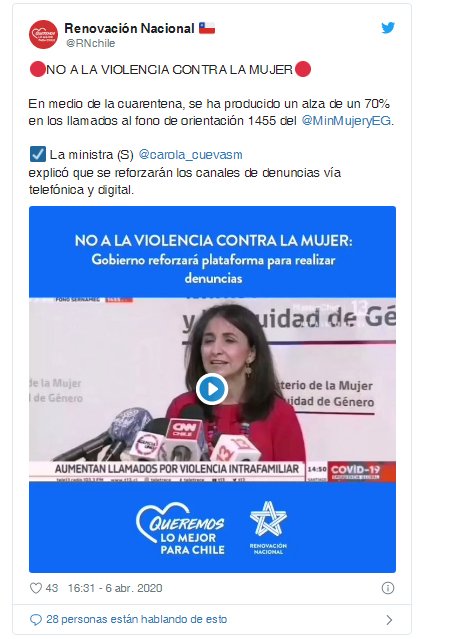
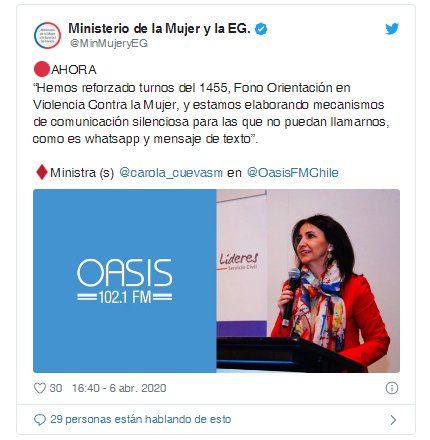
You must be logged in to post a comment.